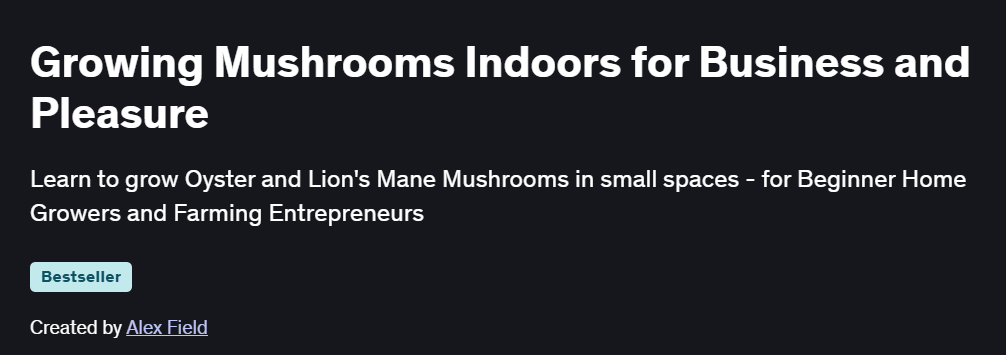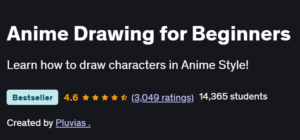What will you learn in Growing Mushrooms Indoors for Business and Pleasure Course
Understand the basics of mushroom anatomy and identification
Learn to safely differentiate edible, inedible, and poisonous mushrooms
Explore mushroom habitats, growth cycles, and spore prints
Discover ethical and sustainable foraging practices
Build confidence to identify common mushroom species in the wild
Program Overview
Module 1: Introduction to Mycology
⏳ 1 week
Topics: Mushroom types, life cycle, anatomy, ecological roles
Hands-on: Examine basic cap, gill, and stem structures
Module 2: Safety and Poisonous Mushrooms
⏳ 1 week
Topics: Identifying toxic species, false look-alikes, safety tips
Hands-on: Analyze images of deadly vs. edible mushrooms
Module 3: Spore Prints and Identification Techniques
⏳ 1 week
Topics: Spore color, shape, and how to take a spore print
Hands-on: Create spore prints at home for classification
Module 4: Habitat, Seasonality & Foraging Tools
⏳ 1 week
Topics: Where and when to find mushrooms, gear checklist
Hands-on: Plan a foraging trip and learn ethical harvesting methods
Module 5: Common Edible Mushrooms
⏳ 1 week
Topics: Recognizing chanterelles, morels, oyster mushrooms, and more
Hands-on: Build a field guide with identification notes and photos
Module 6: Field Observation & Practice
⏳ 1 week
Topics: Foraging dos and don’ts, real examples from the wild
Hands-on: Practice field identification through guided walkthroughs
Get certificate
Job Outlook
Valuable for hobbyists, nature guides, herbalists, and outdoor educators
Increasing demand in ecotourism, culinary foraging, and wellness industries
Skill can support part-time foraging businesses or supplement chef roles
No formal jobs require this, but niche roles benefit from mycology knowledge
Specification: Growing Mushrooms Indoors for Business and Pleasure
|
FAQs
- No prior gardening or mycology experience is needed; the course is beginner-friendly.
- Basic familiarity with plant care can help but is not mandatory.
- Step-by-step guidance on mushroom anatomy, growth cycles, and safe handling is provided.
- Hands-on exercises ensure learners gain confidence in cultivating mushrooms.
- Suitable for hobbyists or those exploring small-scale mushroom businesses.
- Covers indoor cultivation techniques suitable for small-scale production.
- Guidance on selecting mushroom species for profitability and ease of growth.
- Includes tips on ethical harvesting and sustainable practices.
- Learners gain confidence to plan and manage a part-time foraging or growing business.
- Course emphasizes foundational knowledge; marketing and distribution require additional learning.
- Course includes modules on identifying edible, inedible, and poisonous species.
- Hands-on exercises and visual guides enhance recognition skills.
- Spore printing and habitat observation techniques are taught for accurate identification.
- Emphasizes safety rules and ethical foraging practices.
- Skills learned are directly applicable to hobbyist foraging or professional work in wellness industries.
- Course provides a balance of indoor cultivation and ethical foraging practices.
- Step-by-step guidance on mushroom life cycle, spore prints, and habitat observation.
- Indoor exercises help learners create controlled growing environments.
- Covers commonly grown edible species like oyster and morel mushrooms.
- Field observation modules help connect theory with real-world mushroom growth.
- Dedicate 2–5 hours weekly for module completion and hands-on practice.
- Focus on one technique or species per session to reinforce learning.
- Maintain a logbook of observations, spore prints, and growth experiments.
- Practice indoor cultivation exercises regularly to build consistency.
- Engage with online communities or peer groups for additional support and feedback.





